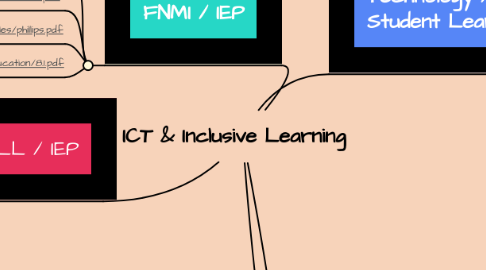
1. ELL / IEP
1.1. http://www.pattan.net/Videos/Browse/Single/?code_name=ells_in_special_education_how_can_esl
1.2. https://prezi.com/90yfr1kyis4q/inclusive-education-in-the-esl-classroom/
1.3. http://www.pattan.net/Videos/Browse/Single/?code_name=monitoring_ells_progress_in_esl_instruct
1.4. http://www.colorincolorado.org/article/addressing-ells%E2%80%99-language-learning-and-special-education-needs-questions-and-considerations
2. FNMI / IEP
2.1. http://www.fnsa.ca/sep
2.2. http://apr.thompsonbooks.com/vols/APR_Vol_6Ch2.pdf
2.3. https://www.umanitoba.ca/publications/cjeap/pdf_files/phillips.pdf
2.4. http://www.afn.ca/uploads/files/education/8.1.pdf
3. Available District Supports
3.1. http://www.ocdsb.ca/sta/teacher_resources/Pages/default.aspx
4. Technology / Strategies to Support Student Learning
4.1. Technology as tools to support knowledge construction:
4.1.1. for representing learners’ ideas, understandings, and beliefs
4.1.2. for producing organized, multimedia knowledge bases by learners
4.2. Technology as information vehicle for exploring knowledge to support learning by constructing:
4.2.1. for accessing needed information
4.2.2. for comparing perspectives, beliefs, and worldviews
4.3. Technology as authentic context to support learning by doing:
4.3.1. for representing and simulating meaningful real-world problems, situations, and contexts
4.3.2. for representing beliefs, perspectives, arguments, and stories of others
4.3.3. for defining a safe, controllable problem space for student thinking
4.4. Technology as social medium to support learning by conversing:
4.4.1. for collaborating with others
4.4.2. for discussing, arguing, and building consensus among members of a community
4.4.3. for supporting discourse among knowledge-building communities
4.5. Technology as intellectual partner to support learning by reflecting:
4.5.1. for helping learners to articulate and represent what they know
4.5.2. for reflecting on what they have learned and how they came to know it
4.5.3. for supporting learners’ internal negotiations and meaning making
4.5.4. for constructing personal representations of meaning
4.5.5. for supporting mindful thinking
